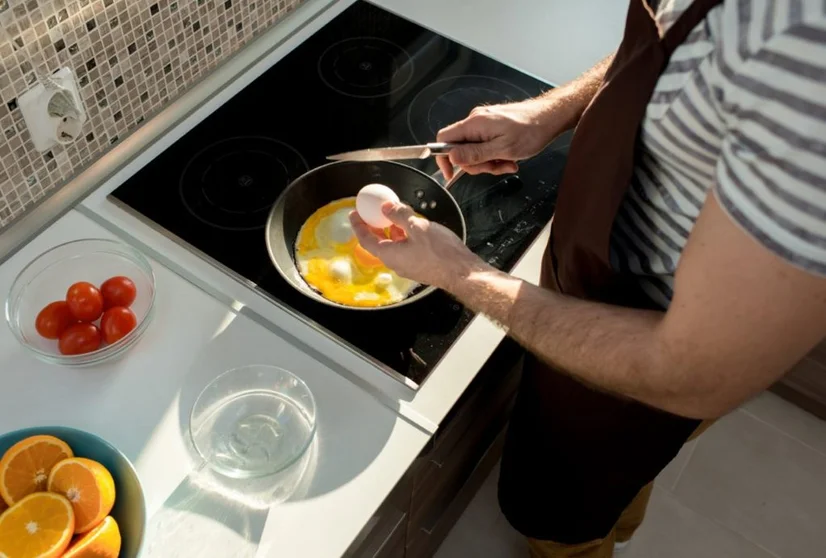Essential Cast Iron Maintenance Guide for BBQ Enthusiasts
Written By James Morgan
For avid BBQ lovers, a well-cared-for cast iron skillet is a prized possession. Knowing how to maintain its quality is essential, and this cast iron maintenance infographic serves as your ultimate guide. Whether you're grilling up burgers or searing steaks, a well-seasoned cast iron pan guarantees even cooking and enhanced flavors.
This article provides insightful tips that delve deeper than basic maintenance, sharing techniques that even experienced grillers may not be aware of. If barbecue is your passion, keeping your cast iron cookware in prime condition is essential. This cast iron maintenance infographic will quickly become your trusted reference, ensuring that your cast iron lasts for years.

Understanding the Unique Characteristics of Cast Iron
Cast iron cookware is celebrated for its heat retention and consistent cooking results. Unlike other types of cookware, cast iron improves with use and develops a natural non-stick surface known as seasoning, formed when fats and oils bond to the surface during cooking.
However, to maintain this seasoning layer, you need to practice regular care. Improper cleaning or storage can compromise the seasoning and lead to rust, affecting performance. Knowing how to preserve this surface is vital for any cast iron cooking enthusiast.
The Significance of Proper Cleaning
A common error among cast iron users is improper cleaning. Many erroneously believe that soap should never touch their cast iron pans. While harsh detergents can strip seasoning, using a mild soap occasionally is acceptable. After cooking, rinse the pan with hot water and scrub away food particles with a brush.
Once cleaned, thoroughly dry the pan and apply a thin coat of oil before storage to prevent rust and preserve the seasoning. If you discover rust spots, there's no need to fret. They can typically be eliminated with steel wool and some effort, followed by reseasoning your pan.
Reseasoning Your Cast Iron
Reseasoning is the technique of applying oil to the surface of cast iron and heating it until it creates a non-stick layer. For optimal results, select oils with a high smoke point, such as vegetable or grapeseed oil. After coating the pan lightly with oil, place it upside down in an oven preheated to 375F (190C) for an hour.
This process should be conducted periodically, especially after comprehensive cleaning or rust removal. A properly seasoned cast iron skillet not only enhances its cooking performance but also enriches the flavors of your barbecue dishes.
Storing Your Cast Iron Properly
Storage is pivotal in preserving the quality of your cast iron cookware. After cleaning and seasoning, store your pans in a dry area. When stacking your cast iron, place paper towels in between to absorb moisture and prevent scratches.
Avoid storing food in your cast iron pans, as prolonged exposure to moisture can result in rust formation. Maintaining good conditions for your cookware ensures its ready for your next grilling session.
Advanced Tips for Serious Cast Iron Fans
If you wish to elevate your cast iron maintenance practices, consider these advanced strategies. First, steer clear of cooking acidic items like tomatoes or citrus in your cast iron, as they can strip the seasoning. If you must prepare these foods, remember to reseason afterward.
Moreover, routinely check your pan for signs of warping which can result from uneven heating. To prevent this, heat your pan gradually and avoid thermal shock by refraining from placing a hot pan in cold water.
For even more expert tips on using cast iron with modern appliances, reference this article on induction cooktops. Understanding how various heat sources interact with cast iron will help you maximize your cookware's potential.

Commonly Asked Questions
How frequently should I season my cast iron skillet?
It's advisable to season your skillet every few uses, particularly after deep cleaning or if the surface appears to be losing its non-stick characteristics.
Is it alright to use soap when cleaning my cast iron pan?
Yes, you can use mild soap sparingly. Steer clear of harsh detergents as they can strip away the seasoning. Always rinse thoroughly and dry immediately after cleaning.
Why is my cast iron pan developing rust?
Rust may form if the pan has not dried completely or if the seasoning layer has been compromised. To remove rust, use steel wool and reseason the pan to restore its protective layer.
By adhering to these guidelines and utilizing our cast iron maintenance infographic, your cast iron cookware will continue to be an invaluable asset in your barbecue toolkit. To further enhance your kitchenware maintenance knowledge, check out additional resources and articles on our site, including how to re-season cast iron and tips for choosing the right grill. Your journey to perfecting barbecue will only be complete with a well-maintained cast iron skillet.



